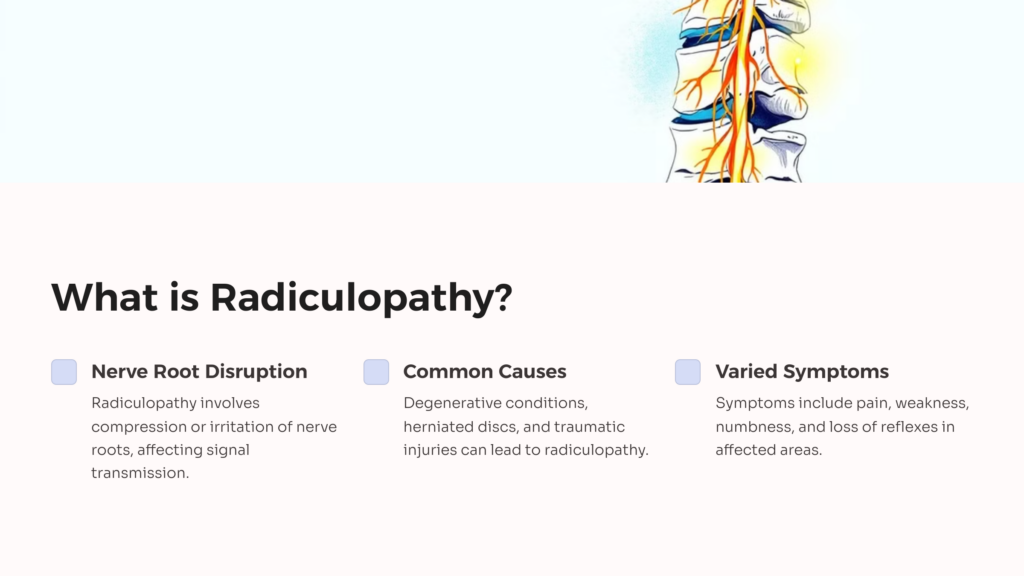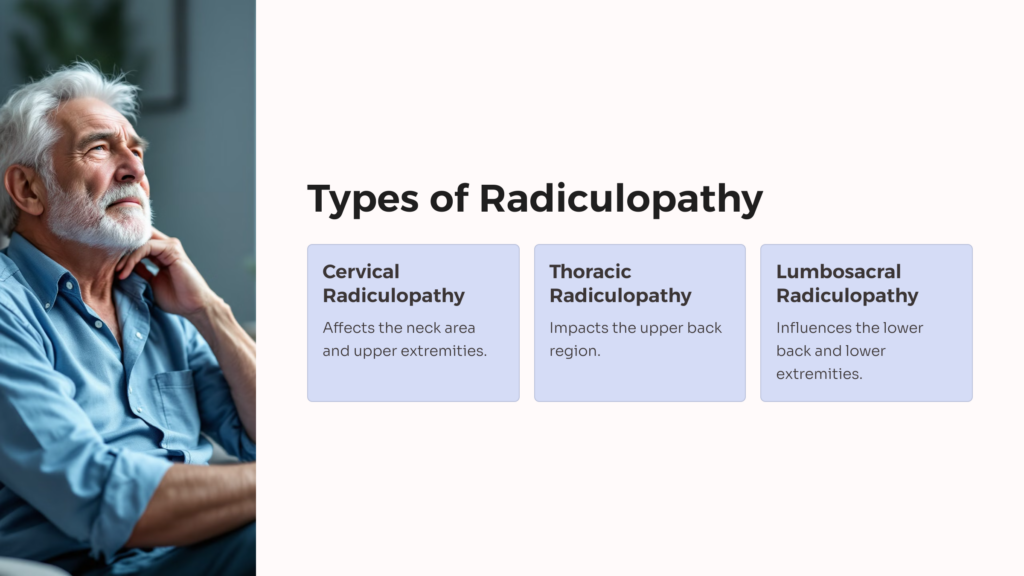Radiculopathy, a condition that disrupts the function of one or more nerve roots, is a persistent medical condition with far-reaching effects on a person’s health and quality of life. These disruptions often result in pain, weakness, and loss of sensation, interfering with a person’s daily activities or responsibilities. Veterans who have served their country may be particularly susceptible to a long term disability such as cervical radiculopathy, due to their rigorous training and the physical demands of their military service.
The Veterans Affairs (VA) has a specific VA disability rating system for evaluating and compensating veterans for their service-connected disabilities, including radiculopathy. Using a numerical scale, the VA disability rating system aims to quantify the severity of a veteran’s condition, establishing a basis for compensation and VA disability benefits. Understanding the VA rating and its significance to veterans is crucial, as it directly affects the amount of monthly disability compensation a VA claim can get.
Understanding Radiculopathy

Radiculopathy is a medical condition characterized by the compression or irritation of the nerve roots, leading to various neurological symptoms. The nerve root is the initial segment of the nerve leaving the central nervous system, and any disruption can affect how signals are sent between the brain and the body.
The common causes of radiculopathy include degenerative conditions such as arthritis, herniated or bulging discs, nerve damage, and spinal stenosis. Additionally, traumatic injuries and infections can also result in radiculopathy. The symptoms vary depending on the affected area but may include neck pain, weakness, numbness, tingling, and loss of reflexes.
Radiculopathy examination involves a series of medical tests—physical examination, medical evidence, and diagnostic tests like X-rays, MRI, and electromyography. This diagnosis helps identify the underlying cause and the severity of the condition, which is crucial for determining the correct treatment and rehabilitation plan.
Various treatments for radiculopathy range from conservative methods to surgical interventions, depending largely on the cause and severity of the condition. Conservative treatments include pain medication, physical therapy, and corticosteroid injections. If symptoms persist or worsen, surgical treatments may be necessary.
Radiculopathy VA Rating: What is it?
The Veterans Affairs disability rating system is a protocol that the VA uses to rate service-connected disabilities based on severity. The purpose is to decide the amount of VA disability compensation a veteran should receive for their VA disability claim, ranging from 0% to 100%.
A radiculopathy VA rating, simply put, is an evaluation of the extent to which radiculopathy impairs a veteran’s ability to perform normal life activities. The VA uses specific criteria to rate radiculopathy, which include but are not limited to, assessment of neck pain, muscle weakness, impairment of sensation, and the impact on muscular control.

Factors Affecting Radiculopathy VA Rating
There are several types of radiculopathy—cervical radiculopathy, thoracic radiculopathy, and lumbosacral radiculopathy—each affecting a different area of the spine and having a different impact on the rating and the VA disability compensation. The VA considers the specific type of radiculopathy and its associated symptoms during their evaluation.
The VA rating also varies depending on the severity of the radiculopathy symptoms. For example, mild symptoms may warrant a lesser rating, while severe radiculopathy symptoms that significantly impair a person’s functioning will draw a higher rating. Furthermore, the veteran’s overall health condition plays a role in determining the VA rating. Veterans with additional health problems may receive more VA disability benefits.
How to Obtain a Radiculopathy VA Rating
Obtaining a radiculopathy VA rating involves going through a comprehensive medical examination by a VA healthcare provider or a VA-contracted healthcare provider. Veterans must provide all relevant medical history and records correlating their condition to their military service.
Essential documents include service medical records, VA medical records, or any private medical records that support the VA disability claim. Gathering solid medical evidence with a well-documented diagnosis and symptoms helps ensure a fair and accurate VA rating for your VA benefits claim.
The Impact of Radiculopathy VA Rating on Benefits

The benefits a veteran receives depend directly on their VA rating. Generally, a higher rating equates to higher monthly compensation. Different ratings signify varying degrees of disability, which influences the amount and type of VA benefits a veteran can potentially receive in response to their VA claim.
For instance, veterans with a 10% VA rating might receive less compensation than those with a 50% rating. This difference reflects the severity of the symptoms and the perceived impact on a veteran’s ability to lead a normal life or engage in gainful employment.
Disputing a Radiculopathy VA Rating
If a veteran disagrees with their radiculopathy VA rating, they have the right to challenge the decision. They can file an appeal with the VA, typically within one year of the decision date. The appeal process involves submitting pertinent documents, obtaining additional medical opinions, and in some cases, attending a hearing.
Veterans can receive assistance from various resources, like Veterans Service Organizations (VSOs), to guide them through the appeal process. Legal representation may also be helpful in complex cases.
Conclusion
Understanding the radiculopathy VA rating is vitally important for veterans seeking disability compensation for their service-connected radiculopathy. The rating system takes into account various factors—type of radiculopathy, symptom severity, and overall health condition—to determine the level of disability and the corresponding benefits.
Veterans are encouraged to keep well-documented medical records and seek help from professionals throughout the rating acquisition or dispute process. The ultimate goal is to ensure that our veterans receive accurate compensation for their disabilities and continue to live a dignified life.
 AllVeteran.com Advisors
AllVeteran.com Advisors
With expertise spanning local, state, and federal benefit programs, our team is dedicated to guiding individuals towards the perfect program tailored to their unique circumstances.











